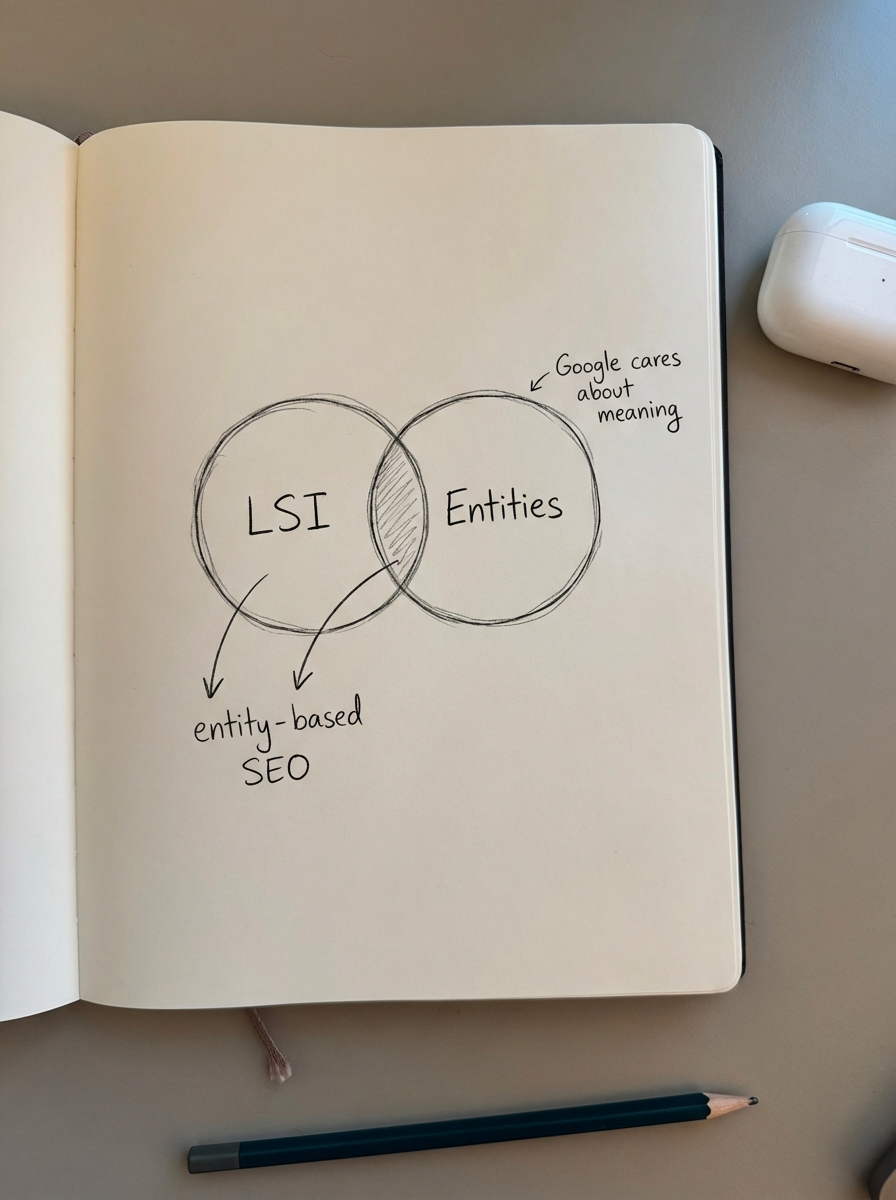Latent semantic indexing keywords generator
Semantic keyword optimization is the only way to build topical authority that survives core updates and feeds the context required for modern AI search engines. If you are still stuffing a single primary keyword into a product description, you are optimizing for a version of Google that has not existed for over a decade. Building a resilient organic presence requires moving beyond exact-match terms to embrace the semantic relationships that define a niche.
Use this generator to surface the semantically related terms and entities that should appear in your WooCommerce category descriptions and blog posts to signal depth and expertise.

[ Seed Keyword Input ] -> [ Generate Semantic Terms ]
Why semantic keywords move the needle for WooCommerce
In ecommerce SEO, we often fall into the trap of focusing purely on the SKU or the most obvious high-volume search term. However, search engines do not just look for the phrase “men’s waterproof hiking boots” to determine relevance. They look for the surrounding context that proves your store is a topical authority. This includes specific technical attributes like “hydrophobic coating,” “breathable membrane,” “Vibram outsole,” and “ankle support.”
When I audit growing stores, the most glaring gap is almost always found in the category pages. Most merchants leave these pages thin or fill them with generic fluff that offers no semantic value. By implementing semantic keyword clustering, you can identify the specific sub-topics and attributes that Google expects to see on a high-ranking category page. This approach directly impacts the bottom line; our research shows that niche-specific long-tail terms often yield conversion rates as high as 25%, compared to just 12% for broader, generic terms. Furthermore, internal ContentGecko analysis indicates that LSI-driven strategies can increase rankings by as much as 30%.
Stop calling it LSI – start calling it entity-based SEO
While “LSI” is the term most marketers use, it is a bit of an industry misnomer. Google does not use the original Latent Semantic Indexing technology developed in the 1980s. Instead, it utilizes sophisticated natural language processing and algorithms like RankBrain and the Knowledge Graph to identify entity-based keyword research strategies and the relationships between them. Modern search is about meaning and intent, not just string matching.

When you use our generator, you are not just getting a list of synonyms. You are viewing a map of the concepts that AI-powered search engines associate with your seed keyword. For instance, if your seed keyword is “espresso machine,” the semantic map includes specific entities like “portafilter,” “boiler,” and “crema,” alongside related tasks such as “tamping” or “milk frothing.” Incorporating these terms makes your content more likely to appear in AI-driven search results like Google’s AI Overviews. Entity-focused content typically ranks significantly higher for specific queries because it satisfies the search engine’s need for topical depth.
How to use semantic keywords in your content workflow
Once you have generated your list of semantic terms, the goal is to weave them into a narrative that serves the user rather than just checking a box for an SEO plugin. I recommend using high-relevance semantic topics as H2 and H3 headings. If “arch support” appears as a high-weight term for your “running shoes” category, it deserves its own dedicated section to address buyer concerns. You should also use these semantic attributes to build detailed product comparison tables. This type of comparison content is highly valued by users who are in the commercial investigation phase of their journey.
Effective implementation also involves the “answer first” method, where you open your blog posts or category descriptions by answering a core user question using these semantic terms. These variations should also be used as anchor text to link to related products or broader topic clusters within your store. I have found that the most efficient way to execute this is to launch an MVP quickly. You can use a free AI SEO content writer to produce a draft that naturally incorporates these terms, then refine the strategy based on the performance data visible in your ecommerce SEO dashboard.
Scaling semantic SEO with ContentGecko
Manually researching semantic keywords and updating content for a catalog of 5,000 SKUs is impossible for most teams. We see many ecommerce managers hit a traffic plateau because they cannot keep their blog and category content synced with a changing product catalog. ContentGecko was built to solve this by automating the entire lifecycle of keyword clustering and content production.

Our platform provides a hands-off approach to building authority:
- We analyze your WooCommerce products to identify the highest-potential clusters that your brand can actually rank for.
- We produce buyer guides and category content that naturally weave in semantic keywords and entities without the risk of keyword stuffing.
- When a product goes out of stock or a price changes, the platform automatically updates your articles to ensure your internal links and product data remain accurate.
If you are ready to move beyond basic keyword lists and start building a real competitive advantage through topical authority, you can connect your store via our secure plugin and let our platform handle the heavy lifting.
TL;DR
Semantic keywords provide the topical depth that search engines require to trust your store as an authority in your niche. Instead of obsessing over keyword density, focus on covering the entities and attributes related to your products to satisfy user intent. Use these terms to optimize category descriptions and build long-tail keyword content that converts at a higher rate. For stores with large catalogs, automation via ContentGecko is the only sustainable way to maintain this level of optimization at scale.
